Institute leaders
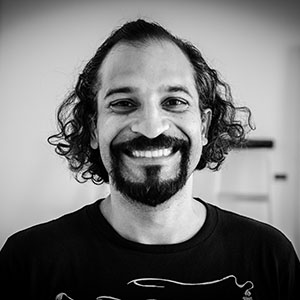 Vivek Venkatesh |
Vivek Venkatesh is UNESCO Co-Chair for the Prevention of Radicalisation and Violent Extremism, director of the SOMEONE initiative and Creator of Grimposium. Vivek’s research programs investigate the intersection between learning, public pedagogy and digital media – especially with respect to the socio-cultural impacts of increased mobile and social media use in the broad context of citizen education. He is an Associate Professor of Education, Director of the Centre for the Study of Learning and Performance, and Associate Dean, Recruitment & Awards, at the School of Graduate Studies at Concordia University in Montreal. |
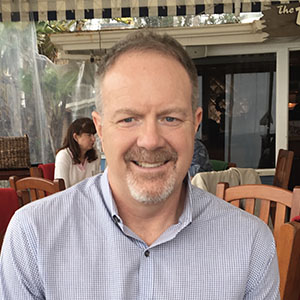 Brad Nelson |
Bradley J Nelson is a Professor Spanish and Associate Dean of Academic Programs and Development in the School of Graduate Studies at Concordia University (Montreal). He is the author of The Persistence of Presence: Emblem and Ritual in Baroque Spain (UToronto, 2010), and the co-editor of A Polemical Companion to Medialogies: Reading Reality in the Age of Inflationary Media, by David Castillo and William Egginton (Vanderbilt UP, 2017); and Spectatorship and Topophilia in Early Modern and Postmodern Hispanic Cultures (Vanderbilt UP, 2012). |
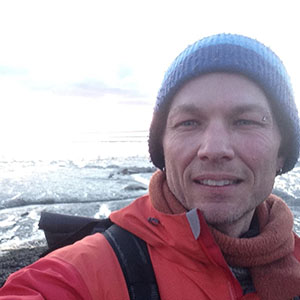 Owen Chapman |
Owen Chapman’s work addresses the place of sound in everyday life. He is an Associate Professor in Sound Production and Scholarship in the department of Communication Studies at Concordia University. He is also co-director of the Participatory Media Cluster, part of the Milieux Institute for Arts, Culture and Technology at Concordia. His writings have appeared in scholarly and critical publications including the Canadian Journal of Communication, Esse, Media-N, Organised Sound and No More Potlucks. His audio work involves app design, live performance and electronic composition and has been featured internationally in video soundtracks, media workshops, solo performances and site-specific installations. |
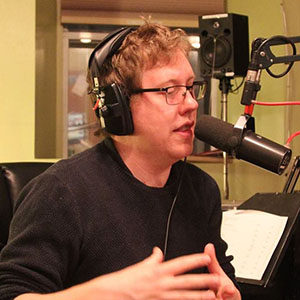 Aaron Lakoff |
Aaron Lakoff is an award-winning independent journalist, media-maker, and community organizer based in Montreal, Canada. His work combines a passion for popular education, social justice, and artistic expression. He has filed radio and written reports from several countries, including Haiti, Israel/Palestine, Mexico, Bosnia & Herzegovina, and across North America. When he isn't working, Aaron is often keeping himself busy as the producer of the successful monthly podcast, “The Rebel Beat”, heard by thousands of people worldwide. He is also currently completing a Masters in Media Studies at Concordia University, with a research focus on hockey, sports media, podcasting, and activism. |
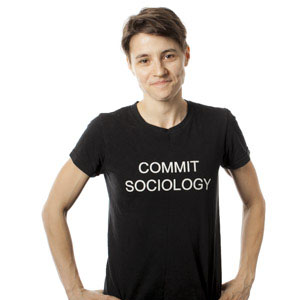 Amy Swiffen |
Dr. Swiffen’s areas of expertise include sociological theory, legal sociology, criminology, and psychoanalysis. Her research is focused on two areas 1) the relationship between law and violence, particularly in new legal contexts like public health legal preparedness and HIV criminalisation 2) sources of legal authority in areas such as Constitutional law and Aboriginal Law. Dr. Swiffen’s book Law, Ethics and the Biopolitical (Routledge 2011) analyses the emergence of a new paradigm in ethical thought known as bioethics from the perspective biopolitical theories of law. She has co-edited a collections of essays on the end of history (Ends of History, 2013) and another on legal violence (Legal Violence and the Study of Law, 2017). She has also published in a variety of refereed journals, including International Journal for the Semiotics of Law, Law and Critique, Law, Culture and the Humanities, Legal and Political Anthropology Review, and Theory and Event. She is currently engaged in research on the collective dimension of the constitutional right to religious freedom in Canada, and on the possibilities for indigenous self-governance within Canada's constitutional framework of Aboriginal rights. |
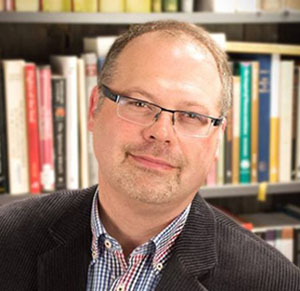 André Gagné |
André Gagné is an Associate Professor in the Faculty of Arts (Department of Theological Studies) at Concordia University. He is also a Digital Fellow of the Montreal Institute for Genocide and Human Rights Studies (MIGS) as well as a research associate with the Centre d'expertise de formation sur les intégrismes religieux et la radicalisation (CEFIR). He works on questions related to politico-religious extremism and violence, radicalization, social identity and movements, self-categorization, as well as the use of sacred texts and traditions by extremist groups and individuals to justify acts of violence. |
 Brad Galloway |
Bradley J. Galloway is currently a 4th year undergraduate student in the School of Criminology and Criminal Justice at the University of the Fraser Valley (UFV). Brad currently works with the Organization for Prevention of Violence (OPV), as a research and intervention specialist, and is the Regional Co-ordinator for the Pacific Northwest district for the Against Violent Extremism Network (AVE). Brad has worked as a research assistant for many Canadian universities and is an affiliate with the Canadian Netowork for Research on Terrorism Security and Society (TSAS). He also continues to research key topics on violent extremist movements in Canada and abroad. |
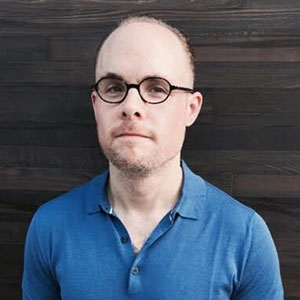 Daniel Butler |
Daniel Butler, MA is a psychoanalytic psychotherapist, death metal vocalist, and doctoral student in History of Consciousness at the University of California, Santa Cruz. His doctoral research addresses the psychopolitical implications of biomedical and psychiatric knowledge formations, especially as they strive to account for selfhood that is absent, lost and/or atomized under the sway of confounding developmental processes, namely regression, resignation, and degeneration. Turning to particular diagnostic categories (dementia, infantilism, resignation syndrome, dissociative disorders), he contends that the aformentioned processes not only pose conundrums for developmental psy/sciences, but serve as markers of excess and catastrophe in the technocratic and accelerationist cultures of neoliberalism. His most recent publication, co-authored with Stephen Hartman, is entitled, “‘This is How You Look’: Mimicry as Defense of the Actual (or Hidden) Child in Sandor Ferenczi’s Psychoanalysis.” |
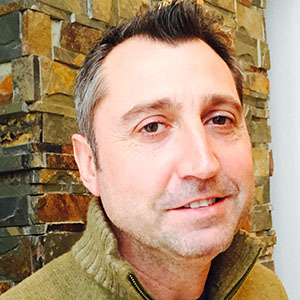 David Castillo |
David R. Castillo is Director of the Humanities Institute and Professor of Romance Languages and Literatures at SUNY Buffalo. He is the author of Awry Views: Anamorphosis, Cervantes, and the Early Picaresque (Purdue UP, 2001) and Baroque Horrors: Roots of the Fantastic in the Age of Curiosities (Michigan UP, 2010) and co-author of Zombie Talk: Culture, History, Politics (Palgrave, 2016) and Medialogies: Reading Reality in the Age of Inflationary Media (Bloomsbury, 2016). Castillo has also co-edited Reason and Its Others: Italy, Spain, and the New World (Vanderbilt UP, 2006), Spectacle and Topophilia: Reading Early and Postmodern Hispanic Cultures (Vanderbilt UP, 2012), and Writing in the End Times (forthcoming 2018). |
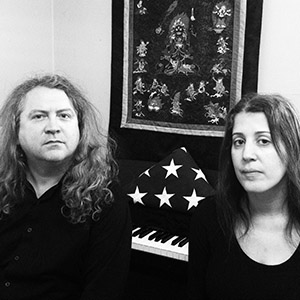 Fyrhtu |
Leila Abdul-Rauf is a composer and multi-instrumentalist based in the San Francisco Bay Area. A co-founder of metal bands Vastum, Saros, and electronic/ambient trio Ionophore, she is also currently a member of Hammers of Misfortune and Cardinal Wyrm. As an ambient solo artist, Leila has released 3 albums under her name, and has collaborated with countless others. Leila is also an academic at heart, having received a Master's degree in Audiology and Speech Sciences from Purdue University in 2001, with a focus on psycholinguistics and child language research. Nathan A. Verrill, co-founder of experimental doom trio Cardinal Wyrm, is a San Francisco Bay Area-based composer, musician and visual artist with roots in the underground metal and improvisation scenes. Nathan received a Bachelor’s degree in Cinema with an emphasis on film production from San Francisco State University in 2003 and has since worked in experimental film and mixed-media projects. Their music is informed by jazz, classical, and avantgarde music and influenced by cinematography and sound design for film. Recent collaborations include recordings and performances with Princess Vuvu and the Undead, and Leila Abdul-Rauf and Ryan Honaker of Ionophore. Fyrhtu is a recent collaboration between Leila and Nathan. |
| Ghayda Hassan |
Dr. Ghayda Hassan is a clinical psychologist and a professor of clinical psychology at l'Université du Québec à Montréal (UQAM). She is the founder and director of the Canada Practitioners Network for the Prevention or Radicalization and Extremist Violence (CPN-PREV). She is also a UNESCO Co-Chair for the Prevention of Radicalisation and Violent Extremism, and a researcher for SHERPA-RAPS, of the CIUSSS Centre-Ouest de l'île de Montréal. She has several national and international partnerships involved in research, clinical practice and community interventions. Her systematic reviews, research and clinical activities are centred on four overarching themes: 1) Social suffering, relationships between communities, and violent extremism; 2) Intervention in the context of armed conflicts and domestic violence; 3) Identity, sense of belonging and mental health of children and adolescents who are members of ethnic or religious minority groups; 4) The intervention and cultural sensitivity training of various professionals working with immigrants and vulnerable refugees. This program has four constituents: a) Systematic review of the literature outlining best practices; b) the reinforcement of intervention capacity via the training professionals accredited by the MSSS and the MÉES; c) Direct interventions via cooperation with community partners and; d) International partnerships for policy review and strategic planning. |
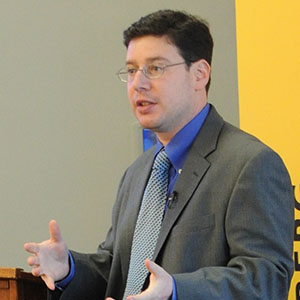 Jeff Podoshen |
Jeff Podoshen is Associate Professor in the department of Business, Organizations and Society at Franklin and Marshall College in Lancaster, PA, USA. Jeff’s area of research relates to death consumption and dark tourism practice, and he often blends and bridges theory from a variety of disciplines (such as marketing, social psychology and sociology) in order to explain phenomena and build theory. Jeff utilizes a myriad of mixed method and cutting edge qualitative techniques to distill complex data into more easily defined categories that allows for greater introspection on specific subcultures. He teaches Propaganda and Genocide, Consumer Psychology as well as courses related to general consumption and media. |
 Jessie Beier |
Jessie Beier is an Edmonton-based teacher, artist, writer and conjurer of strange pedagogies for unknown futures. Beier is a SSHRC Doctoral Fellow and Killam Scholar currently completing her PhD at the University of Alberta, where she also teaches as an undergraduate instructor in the Department of Secondary Education and is co-director of the Research-Creation and Social Justice CoLABoratory (University of Alberta). Working at the intersection between speculative philosophy, ecological praxis, and radical pedagogy, Beier’s research-creation practice explores the potential for visual and sonic ecologies to mobilize a break from orthodox referents and habits of repetition, towards more eco-logical modes of thought. |
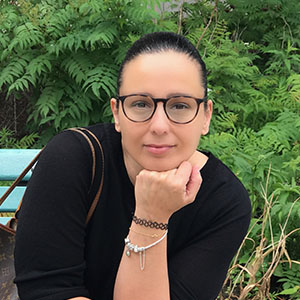 Jihan Rabah |
Dr. Jihan Rabah is currently Director, Research and Analysis at eConcordia, Concordia University, Chair for the Doctoral Student Committee on the Social Sciences and Humanities Research Council of Canada (SSHRC) Partnership Project at the Centre for the Study of Learning and Performance, and Co-Principal Project SOMEONE. She has completed her PhD in Educational Technology. She is a core team member of the Digital Strategy Support Group under the direction of Concordia University’s Vice Provost Digital Strategy. She also holds working team member position on several digital-related university-wide initiatives working closely with various faculty, administration and support services at Concordia University. |
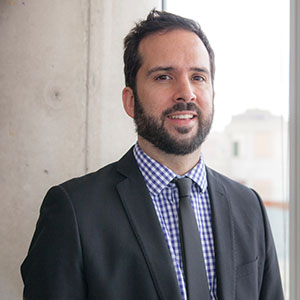 Juan Carlos Castro |
Juan Carlos Castro (PhD) is Chair and Associate Professor of Art Education at Concordia University in Montreal, Quebec, Canada. His current research examines how mobile media coupled with creative production networks knowledge in urban environments to create educational and civic engagement with teens and young adults. He is currently Principal Investigator for the Social Sciences and Humanities Council Insight funded project: MonCoin: Investigating mobile learning networks to foster educational engagement with at-risk youth (2015-2018). |
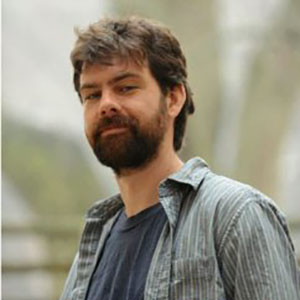 Kregg Hetherington |
Dr. Kregg Hetherington is director of the Concordia Ethnography Lab. In his own work, he uses ethnography to understand relationships between complex social-material objects such as agriculture, bureaucracy, environment and infrastructure. He has written extensively about how small farmers caught in a sweeping agrarian transition in Paraguay have experienced that country’s halting transition to democracy, showing how activists create new ways of thinking and practicing government. His book, Guerrilla Auditors, is an ethnography of peasant land struggles in Paraguay, and of how rural thinking about property and information come into conflict with bureaucratic reform projects promoted by international experts. At the Lab, Kregg leads the Montreal Waterways Project, an experiment in composite ethnography, which sends different teams of researchers to investigate distinct “water objects,” socio-technical assemblages of water found around Montreal. He also leads a working group on Infrastructure and Environment, and runs a Writer’s Circle. |
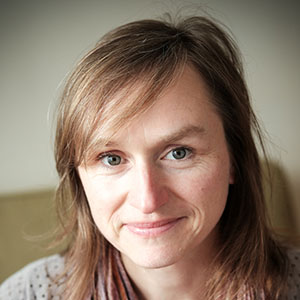 Marie-Pierre Labrie |
Marie-Pierre Labrie is a doctoral student at the Department of Art Education at Concordia University, where she focuses on pedagogical approaches that foster body and technologies interrelations. She was a media arts instructor at UQAM and Concordia universities, coordinator for Turbine, an art creation centre, and commissioner for culture for the city of Montreal. Labrie’s work revolves around the conception and implementation of projects that link pedagogy and media arts—for children and adolescents—while collaborating with professional artists and school as well as community settings. |
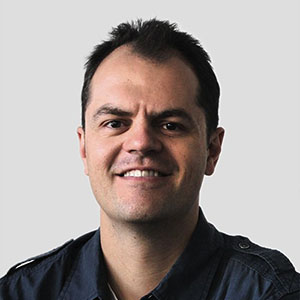 Martin Lalonde Martin Lalonde |
Martin Lalonde is a PhD candidate in the Department of Art Education of the Faculty of Fine Arts at Concordia University in Montreal, Canada. His research focuses on mobility, complexity thinking, youth digital culture, multimodal literacy, educational technologies and new media art curricula. Prior to his work in the Academia, he worked as a video artist and performer. He founded in 2005 the Cité des Arts, an art education program and department in a school for young dropouts in the Montreal area and has since participated in the development of several educational programs for the retention and academic success of at-risk student population. |
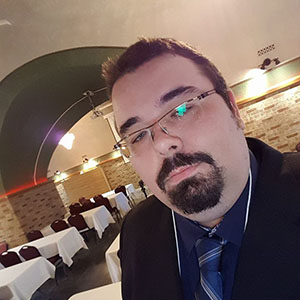 Maxime Fiset |
Maxime Fiset is a projects associate at the Centre for the Prevention of Radicalization Leading to Violence (CPRLV). A former neo-nazi skinhead and organizer in Quebec’s far-right movement, he had a change of heart and, through studies in political science at Université Laval, developed perspective on his past that he now uses to combat violent activism and hate speech. In addition to his work with CPRLV, Mr. Fiset monitors activities of various non-religious extremist groups and the alt-right movement in Quebec. |
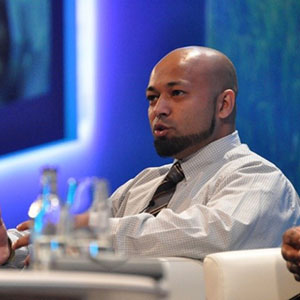 Mubin Shaikh |
Mubin Shaikh is a deradicalized ex-extremist turned undercover operative for the Canadian Security Intelligence Service and Royal Canadian Mounted Police (RCMP), Integrated National Security Enforcement Team (INSET). Shaikh worked multiple CLASSIFIED infiltration operations, one of those files moving to the RCMP in the “Toronto 18" terrorism case of 2006, convicting 11 aspiring violent extremists. Shaikh has a Master of Policing, Intelligence and Counter Terrorism (MPICT), is an external SME (Subject Matter Expert) to the Command Staff of CENTCOM, the United Nations Security Council and others, and trains police, intelligence and special operations forces on relevant topics. He is extensively involved with the ISIS social media and Foreign Fighter file, including Returnees and rehabilitation. Shaikh is also co-author of the acclaimed book, Undercover Jihadi. |
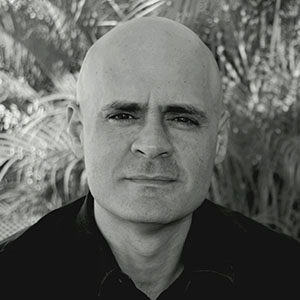 Nelson Varas-Díaz |
Dr. Nelson Varas-Díaz is a Professor of social-community psychology at Florida International University’s Department of Global and Sociocultural Studies. His research addresses the social, political and individual level implications of stigmatization. His research has focused on the social stigmatization of disease (i.e. HIV/AIDS, addiction), marginalized groups (i.e. transgender individuals) and cultural practices (i.e. metal music, religion). His work has been published in multiple journals, including the Journal of Community Psychology, AIDS Care, Culture, Health and Sexuality, Journal of Homosexuality, Global Public Health, and Metal Music Studies. His music related documentary film work has garnered multiple sets of laurels in international film festivals. |
Ritu Banerjee |
Ritu Banerjee is the Senior Director for Canada Centre for Community Engagement and Prevention of Violence at Public Safety Canada which was launched in June 2017. Since 2008, she has been with Public Safety Canada working on a range of national security policy issues. Prior to that, she worked as a policy advisor at the Afghanistan Task Force and in the Security and Intelligence Secretariat both within the Privy Council Office. She has also worked for the federal Department of Justice. In addition to a Bachelor of Arts degree from McGill University, she has a Master of Arts in Political Science from the School of Oriental and African Studies, University of London and a Law degree from the University of Ottawa. She has been a member of the Law Society of Upper Canada since 2000. |
 Ryan Scrivens |
Ryan Scrivens is a Horizon Postdoctoral Research Fellow at Project SOMEONE, hosted at Concordia University. He is also a Visiting Researcher at the VOX-Pol Network of Excellence, a Research Associate at the International CyberCrime Research Centre at Simon Fraser University, and the Associate Theses Research Editor of Perspectives on Terrorism. His primary research interests include: right-wing extremism, hate crime, countering violent extremism, and research methods and methodology. Ryan has presented his research before the Royal Canadian Mounted Police, the Canadian Security Intelligence Service, the Swedish Defence Research Agency in Stockholm, and the Centre of Excellence for National Security in Singapore. |
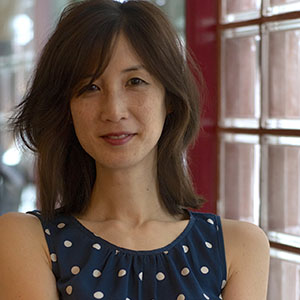 Sandra Chang-Kredl |
Sandra Chang-Kredl is an Associate Professor in the Department of Education, with professional experience as a certified teacher and administrator in early years education. Her research program intersects the areas of teacher education, curriculum studies, and children’s popular media culture. She was awarded funding from FRQSC and SSHRC to examine issues related to teacher identity, including teachers' uses of memory to construct beliefs about childhood. She explores children’s media experiences from the perspective of new literacies and the impact of technological changes on children’s symbolic and social play. As collaborator and co-investigator in two Public Safety Canada grants, she evaluates curricular strategies to support non-discriminatory practices online and offline. |
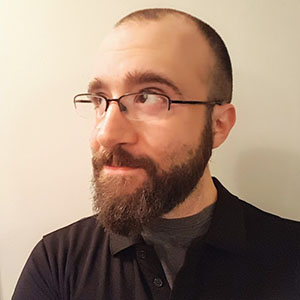 Simon Rodier |
Simon Rodier is a student at Concordia University, currently working on his M.A. in Educational Technology. He is also a software developer at the National Research Council in Ottawa, having obtained his Bachelor of Applied Science in Computer Science at Université Laval, in Quebec City. His research interests currently include examining the ways that Machine Learning and Natural Language Processing techniques can be applied to social media texts in order to uncover patterns of persuasive behaviour in language and communication in online fora. |
 Stefanie Duguay |
Stefanie Duguay is Assistant Professor of Data and Networked Publics in the Department of Communication Studies at Concordia University. Her research focuses on the influence of digital media technologies in everyday life, with particular attention to sexual and gender identity and social media. This has included studies of lesbian, gay, bisexual, trans and queer (LGBTQ) people’s use of social media, dating apps, and multiple platforms for everyday activism. Stefanie’s research has been published in New Media & Society, Social Media + Society, Information, Communication & Society, Disability & Society, and other international, peer-reviewed journals. |
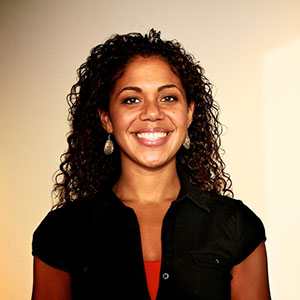 Tieja Thomas |
Dr. Tieja Thomas is a researcher and educator who studies issues at the intersections of citizenship education, educational technology, and social change. Specifically, she thinks, teaches, and writes about the social risks and opportunities associated with advances in new communication technologies and their effect on citizens’ wellbeing. Her major research program (Someone Project) aims to equip Canadians with strategies for building resilience to hate and discrimination in online and offline environments, while also ensuring that citizens use information and communication technologies to build safer, healthier, and more inclusive communities. Dr. Thomas is a Senior Policy Analyst with the CRTC and Contract Instructor in the Department of Communication and Media Studies at Carleton University, Ottawa, Canada. |
Co-sponsors




